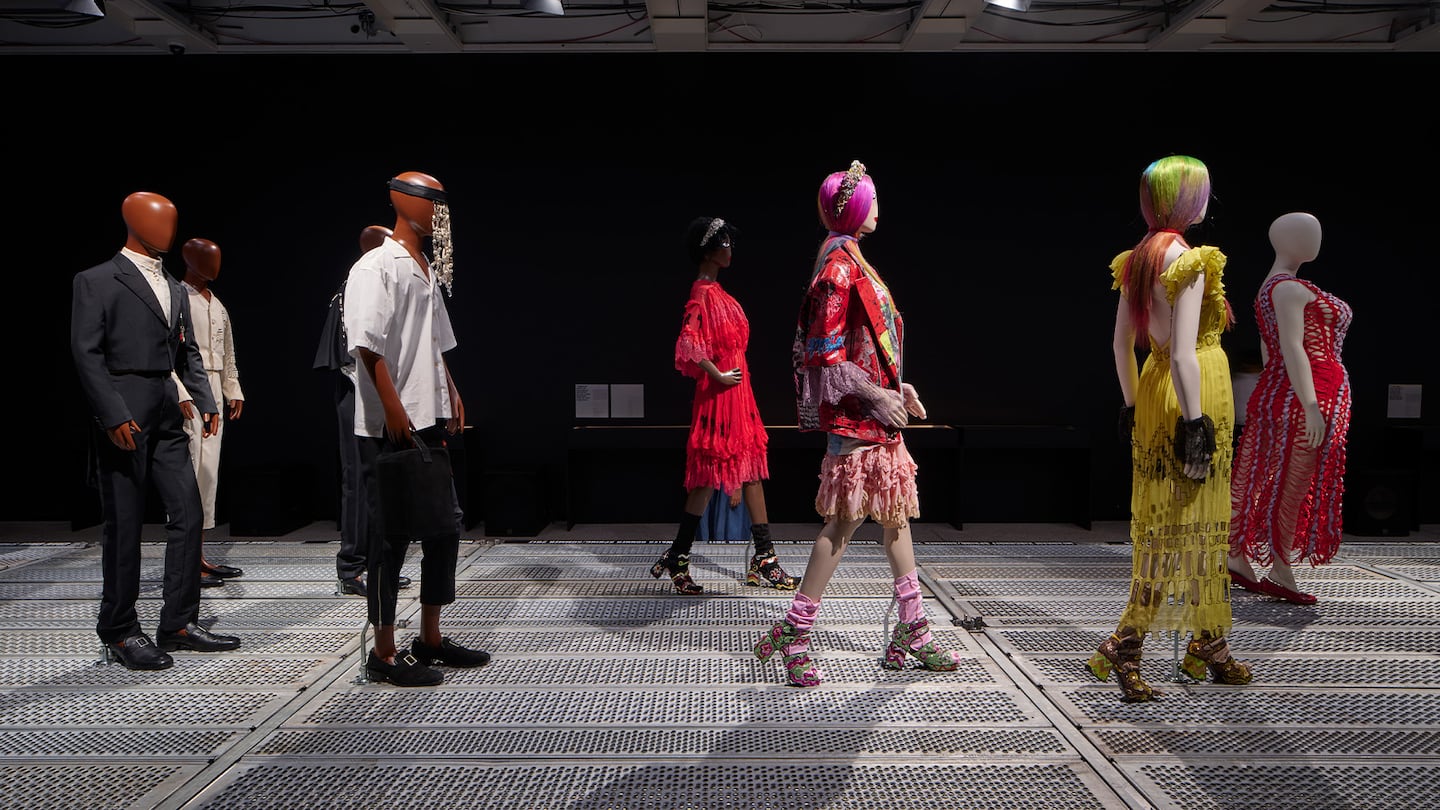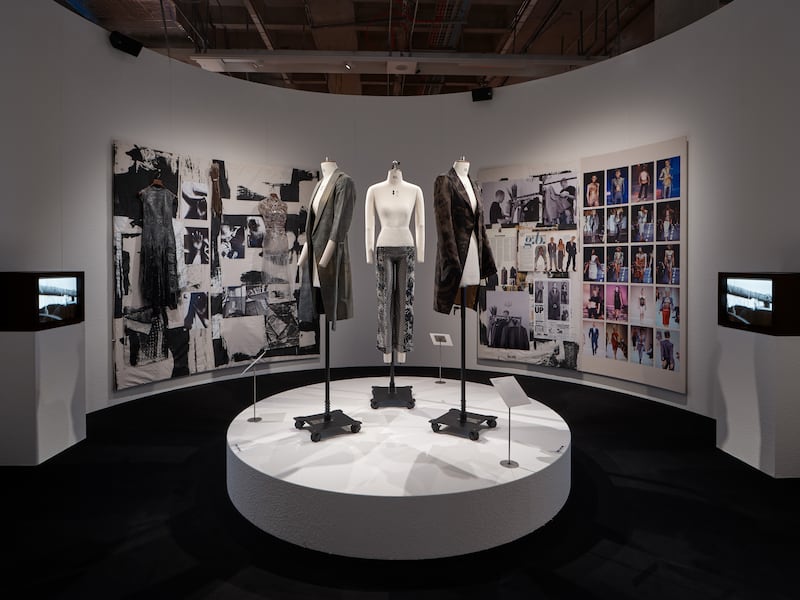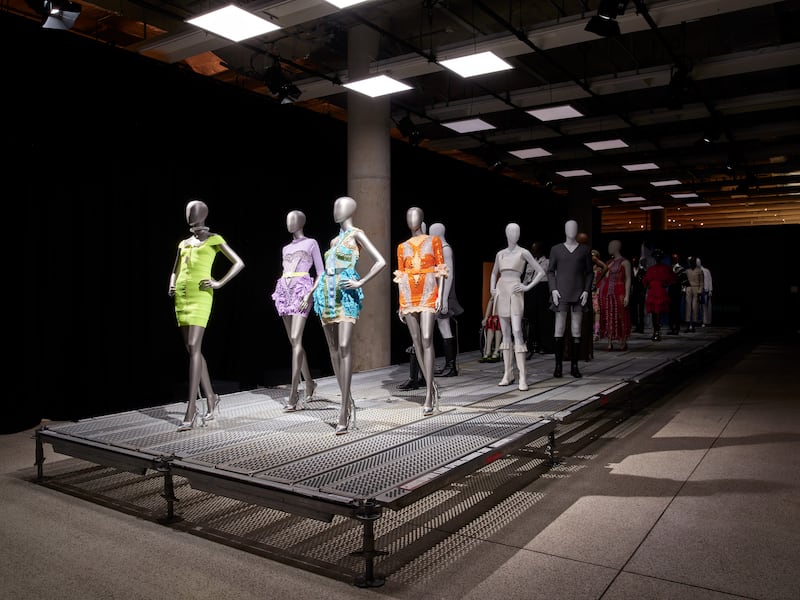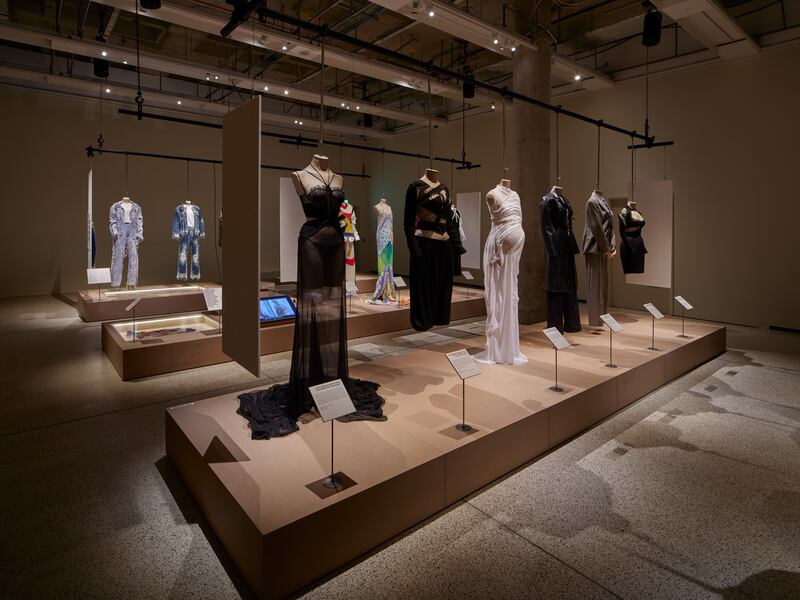
The Business of Fashion
Agenda-setting intelligence, analysis and advice for the global fashion community.

Agenda-setting intelligence, analysis and advice for the global fashion community.

Back in 1993, London Fashion Week was skeletal. The UK’s economy was in a deep recession and Vivienne Westwood had just decamped to Paris. In a bid to attract retailers and press to the London shows, the British Fashion Council made a bet on the city’s young design talent, initiating a scheme called NewGen to help fledgling labels show their collections.
Originally, the programme sought to simply offer young talent a venue in which to present their work, but over the years, with the help of sponsors like Topshop, designers, chosen by an industry-led committee, began to receive cash awards, as well as mentorship, from NewGen.
Fresh out of London’s Central Saint Martins, Lee McQueen became one of the first designers to benefit from the scheme, which helped him to present his sophomore “Taxi Driver” collection featuring the first iteration of his provocative “bumster” trousers in an exhibition-style presentation at the Ritz Hotel in March 1993.

In “Gods and Kings: The Rise and Fall of Alexander McQueen and John Galliano,” author Dana Thomas called the presentation “a bit of a ramshackle circus” but the moment became part of McQueen’s (and London’s) mythology, suggesting that young and daring local designers could launch consequential brands straight out of school.
ADVERTISEMENT
Since then, nearly 300 designers have taken part in the NewGen scheme, all named in a “river of talent” timeline that opens an exhibition celebrating 30 years of the programme at the Design Museum in London, sponsored by Alexander McQueen and curated by Sarah Mower, the British Fashion Council’s longtime ambassador for Emerging Talent, chair of the NewGen committee and unofficial fashion godmother of sorts to the fashion community.
The exhibition, entitled Rebel: 30 Years of London Fashion, successfully highlights the idiosyncrasy of London and what makes the city such fertile ground for fashion talent from its top art schools and subversive nightlife to the local creative community’s propensity to help one another and make things happen with very little.
NewGen’s high points came in the early-to-mid 2010s when participants like Christopher Kane, Jonathan Anderson and Erdem Moralıoğlu came to full fruition and were being touted as future creative directors of major brands as well as builders of new British houses.
Even today, NewGen is the backbone of London Fashion Week. The schedule is still largely composed of current participants, alumni or those who have benefitted from complementary schemes such as Fashion East, allowing London’s fashion showcase to carve out a USP rooted in discovery: home to few big brands but worth a fashion month stop for its reputation as a hotbed of fresh young designers trying to punch above their weight.
“NewGen really snowballed because it was so successful in bringing editors and buyers to the city and gave London its credibility,” said Mower. “Youth, individuality, originality, multiculturalism is what London is.” Along the way, NewGen itself earned global recognition, inspiring similar schemes, funds, prizes and other initiatives all around the world.
At the Design Museum show, being confronted by the sculptural audacity of Gareth Pugh or Meadham Kirchhoff’s rainbow-haired riot girls makes one reminisce about their heady beginnings. But it’s also a stark reminder that these labels no longer exist beyond the annals of London Fashion Week history. Even Christopher Kane — arguably one of NewGen’s buzziest and most successful alumni, whose seminal Spring/Summer 2007 racy lacy dresses are front and centre in the exhibition — was recently forced to shutter his namesake label.

Olya Kuryshchuk, former CSM fashion graduate and founder of 1 Granary, has long been critical of the boom and bust cycle that so many London designers have gone through.
Too often, promising design graduates, on the back of a well-received final-year collections are encouraged to start their own labels with little-to-no business experience or start-up funding, she said. Their debuts are nonetheless hyped by the media, which drives retailers to come knocking as they look to hot young labels to differentiate their buys, even if the brands in their sights have little means to actually manufacture the clothes they show.
ADVERTISEMENT
“Do we support them by doing this promotion?” asked Kuryshchuk. “Or do we unintentionally expose their imperfections? Are we just throwing designers, whose business can’t even crawl right into the deep end?”
Peter Pilotto and Christopher de Vos, NewGen alums who put their label on pause in 2020, praise the scheme but recall the pressure they felt to carry on staging pricey fashion shows even when the grant money stopped flowing (NewGen normally supports designers for up to three years). “By the time you have graduated from NewGen, have you grown your business sufficiently to continue doing fashion shows? And if your business cannot sustain it, then you have to look for sponsorships and collaborations,” said De Vos.
The compulsion to stage fashion shows is strong precisely because there have been so many seminal, truly spine-tingling fashion moments on the runway, which the Design Museum exhibition highlights. But Aaron Esh, who graduated from CSM in 2022 and will be staging his first men’s and women’s show on Monday, has chosen not to use the NewGen showspace.
“I see it quite black and white,” said Esh. “You’re in the business of selling clothes and doing a show is part of that. For our first show, we wanted to curate our own space, which has been ten times more work but I think, in the long-term, takes us away from being on that hamster wheel.”
(Esh has, however, found other elements of the NewGen scheme useful, including its mentorship programme. “They’ve been great when it comes to legal or production support. If I ever had any issue when it came to business management, they’re an email away. Like they could help me draft an employee contract. That would cost money normally.”)
Thomas Tait, who debuted his label in 2010 after a much-lauded graduate collection only to close it down in 2015 after realising the business wasn’t commercially viable, warns labels not to become dependent on schemes like NewGen. “It helps your cash flow when you win a cash prize, but it was never something that I rationally depended on or factored in,” said Tait.
“Designers need to grow up and take responsibility for their decisions and their actions,” said Kuryshchuk. “We shouldn’t infantilise them all the time and go, ‘Awww poor designers…’ We forget that it’s a privilege to have your own label.”

But NewGen may have value beyond the longevity of the labels it supports. “The value of all of this young creativity is that it’s essentially the R&D of their lives and potentially for the industry as well,” said Mower. Some NewGen alumni — most notably Fabio Piras, course director of CSM’s MA programme — currently teach at key fashion schools or consult for larger brands. And while only a handful of NewGen designers have built labels that have stood the test of time, the ideas they explored while part of the program have undoubtedly contributed to the wider fashion conversation.
ADVERTISEMENT
“If you look at it strictly from the point of view of commerce, then we can be very harsh about it,” acknowledged Mower. “But if you look at it from the point of view of artistic expression, being part of a culture and also anticipating what’s coming, it’s just remarkable. Where would we be if all young people are silenced and if everything had to be bland and commercial?”
On display at the Design Museum exhibition, menswear designer Paolo Carzana’s slogan sums up the creative tenacity that, for better or worse, is a key part of London’s unique fashion psyche — thanks in large part to NewGen: “Imagine we could be the ones to change it all.”
From Harris Reed to Molly Goddard to JW Anderson, creativity and a growing sense of camaraderie ran through the first three days of London Fashion Week, writes Susanna Lau.
London Fashion Week was a more regional affair this season, but the city’s young talents held the fort, punching well above their weight, reports Susanna Lau.
From where aspirational customers are spending to Kering’s challenges and Richemont’s fashion revival, BoF’s editor-in-chief shares key takeaways from conversations with industry insiders in London, Milan and Paris.
BoF editor-at-large Tim Blanks and Imran Amed, BoF founder and editor-in-chief, look back at the key moments of fashion month, from Seán McGirr’s debut at Alexander McQueen to Chemena Kamali’s first collection for Chloé.
Anthony Vaccarello staged a surprise show to launch a collection of gorgeously languid men’s tailoring, writes Tim Blanks.
BoF’s editors pick the best shows of the Autumn/Winter 2024 season.